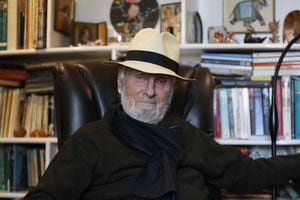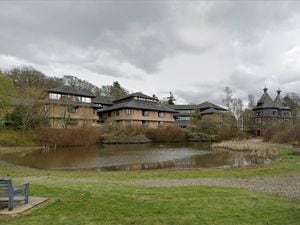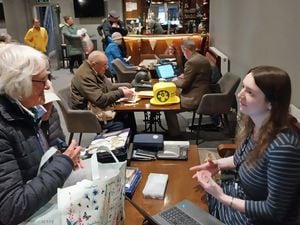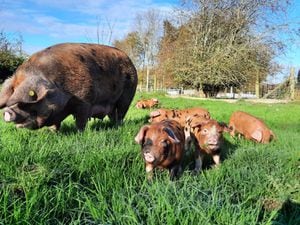Tributes to Mid Wales inventor who catered for elderly
David Edmund Talbot Garman, the award-winning inventor of the world's first portable, powered bath lift, among many other healthcare products, has died at his home in Mid Wales, aged 96.

He was recognised with an OBE in the 2015 Queen's New Years Honours for services to healthcare in appreciation of his invention of that bath lift as well as other emergency lifting equipment, which are now widely used in hospitals, care homes and by ambulance services around the world. In 2007, aged 85, he was awarded the British Healthcare Trades Association ("BHTA") Lifetime Service Award for his contribution and dedication to the rehabilitation industry.
He invented, designed and manufactured these products through the company he established with his wife, Francesca, from their Welsh cottage in 1981. They ran this business together, called Mangar International, from Presteigne, until 2014 when it was sold, by which time he was 91, but even in his late "retirement" he continued inventing right up until his final months.
David, who died on Friday, January 4, was a passionate conservationist and naturalist and for decades served as the Vice-President of the Radnorshire Wildlife Trust. He invested heavily in the preservation of flora and fauna in Wales, where he planted one of the largest broad-leaved woodlands of more than ten thousand trees near Llandrindod Wells. Walking on his Welsh hillside every day he would recognise the bird varieties from their song, and could recount the exact dates each migratory species would arrive and depart each year.
Born in Thakeham near Pulborough in West Sussex in 1922, he was the eldest son of the Celia Talbot and Captain Edmund Garman, one of their four children with Elizabeth, Joseph and Joan.
He was initially educated by nuns at St John´s Convent School at Alton Towers, Staffordshire, and thereafter by Dominican monks, first at St Louis School at Spode House, Hawkesyard in Staffordshire, and later at Laxton Hall in Rutland, Northamptonshire. He remained a devout Catholic throughout his life.
Difficulties
At the age of 17, at the outbreak of the Second World War, he was called up and joined the Royal Air Force, serving for three years in the ground crew for No. 75 Squadron in Cambridgeshire, until he was honourably discharged. Later he spent a brief period as a school teacher in Devon before training to become a Chartered Company Secretary in London and working for a number of auto sector engineering companies in Hampshire, which is where he developed an interest in product design and materials.
During this period, as a carer for a number of his elderly relatives he became aware of the difficulties for older people to bathe, which inspired his first invention, the elevating, portable, powered bath lift, for which he won the HTV Design Award in 1981. He successfully visualised and commercialised an aid which would result in a safe and dignified bathing experience for older and disabled people.
His later inventions, which also ingeniously utilised low air-pressure, all assist elderly or disabled people to manage more independently at home or in a more dignified manner in hospitals or residential homes, or assist the emergency services, such as ambulance crews, to lift and manoeuvre sick, elderly or injured people, whatever their size and weight. These inventions include different types of Emergency Lifting Cushion, such as "the Elk" and "the Camel", which are still widely used around the world by paramedics and nurses.
He married Francesca Jackson in Oxfordshire in 1972 and they moved to Powys where they lived happily together for almost fifty years near Penybont. He is survived by their four sons, Rupert, Jocelyn, Benedict, and Dominic, as well as eight grandchildren.





